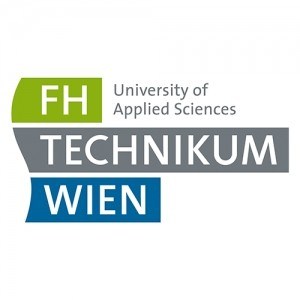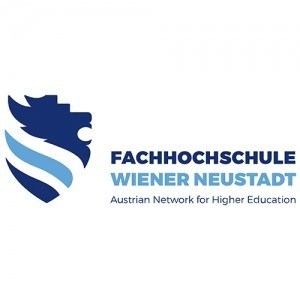Photos of university / #technikum_wien
The Master of Science in Tissue Engineering and Regenerative Medicine at the University of Applied Sciences Technikum Wien is a comprehensive advanced degree designed to equip students with the knowledge and skills necessary to contribute to the rapidly evolving field of regenerative healthcare. This program combines interdisciplinary training in biology, engineering, and medicine to develop innovative solutions aimed at repairing, replacing, or regenerating damaged tissues and organs. Students will gain a thorough understanding of fundamental biological processes, material sciences, and bioengineering techniques, enabling them to design and develop cutting-edge biomaterials, scaffolds, and cellular therapies. The curriculum emphasizes hands-on laboratory work, research projects, and collaborations with industry partners, providing practical experience and fostering an innovative mindset essential for careers in research, development, and clinical application of regenerative therapies. Throughout the program, students explore topics such as stem cell technology, bioprinting, biomaterial design, tissue scaffolding, and regulatory considerations, preparing them to address complex challenges faced in tissue regeneration and personalized medicine. The program also promotes critical thinking, problem-solving, and entrepreneurial skills, encouraging graduates to drive innovation in the healthcare sector. Graduates of this master's program will be equipped to work in research institutions, biotech companies, healthcare organizations, or pursue further academic research. The program prepares students to contribute to advancements in regenerative medicine and tissue engineering, ultimately improving patient outcomes and advancing healthcare technology on a global scale.
The Bachelor’s Degree Programme in Tissue Engineering and Regenerative Medicine at the University of Applied Sciences Technikum Wien offers students a comprehensive education in the interdisciplinary field of biomedical sciences focused on regenerative therapies. This innovative program combines principles from biology, engineering, and medicine to prepare graduates for careers in developing advanced solutions for tissue repair, organ regeneration, and innovative medical treatments. The curriculum is designed to provide students with a solid foundation in cell biology, biomaterials, bioprocess engineering, and clinical applications, ensuring they acquire both theoretical knowledge and practical skills essential for the rapidly evolving field of regenerative medicine.
Throughout the programme, students will explore topics such as stem cell technology, bioprinting, tissue scaffolds, and bioreactor design. They will learn how to manipulate biological systems and develop techniques for tissue cultivation and regeneration, which are crucial for creating personalized treatment options. Practical laboratory sessions and project-based work enable students to gain hands-on experience with cutting-edge laboratory equipment and methodologies used in tissue engineering laboratories worldwide.
The program emphasizes an interdisciplinary approach, encouraging collaboration across fields such as biology, chemistry, medicine, and engineering. Students will also receive training in quality assurance, regulatory affairs, and ethical considerations, preparing them to navigate the complex landscape of medical device development and clinical trials. The programme also includes internships and industry partnerships, providing students with real-world experience and networking opportunities within the biomedical industry.
Graduates of this degree will be equipped to pursue careers in research and development, clinical application, and product management within biotechnology companies, medical device manufacturers, research institutions, or start-ups specializing in regenerative therapies. They will also have the necessary background to engage in further postgraduate studies or scientific research. By integrating innovative academic instruction with practical training, the programme aims to contribute to the future of healthcare through advancements in tissue engineering and regenerative medicine.
Program requirements for the Master’s degree in Tissue Engineering and Regenerative Medicine at the University of Applied Sciences Technikum Wien include a completed Bachelor's degree or equivalent in a relevant field such as biomedical engineering, life sciences, or related disciplines. Applicants are expected to demonstrate a solid foundation in biology, chemistry, and engineering principles necessary for understanding tissue scaffolding, cell culture techniques, biomaterials, and regenerative processes. Proficiency in English is mandatory, with certificates such as TOEFL or IELTS typically required unless the applicant's previous education was conducted in English. Additionally, relevant work experience in laboratory settings or research projects related to tissue engineering can be advantageous for admission. The program emphasizes interdisciplinary knowledge, so applicants should have a demonstrated interest or background in medical sciences, biotechnology, or bioengineering. Submission of a motivational letter explaining the applicant’s interest in regenerative medicine and career goals, along with a CV detailing academic and professional history, is also required. Some prerequisites in terms of specific coursework or technical skills may be assessed during the application review. A successful application must meet all the academic and language requirements outlined by the university’s admissions office. It is recommended that applicants thoroughly review the official program website or contact the admissions office for detailed eligibility criteria and application procedures, as requirements may be updated periodically. The program aims to attract students with a background in science and engineering who are eager to advance their expertise in cutting-edge biomedical technologies.
The financing of the Tissue Engineering and Regenerative Medicine program at the University of Applied Sciences Technikum Wien primarily relies on a combination of tuition fees, government funding, and institutional support. Tuition fees for international students are structured in accordance with the university's policies, which aim to ensure accessibility while maintaining educational quality. For Austrian and EU students, tuition is typically subsidized or fixed at a lower rate, reflecting the national and European Union funding schemes for higher education. Non-EU students may be subject to higher tuition fees, which are established to cover the cost of instruction, research, and facility maintenance.
In addition to tuition fees, students may have access to various scholarship programs designed to support students financially throughout their studies. These scholarships may be based on academic merit, financial need, or specific criteria related to the program's focus, such as innovation or research potential in regenerative medicine. The university also benefits from funding received through research grants from national and European Union funding bodies, such as Horizon Europe and other research initiatives. These grants support not only faculty research projects but also can be allocated to student research and international collaborations, enriching the educational experience.
Furthermore, the university collaborates with industry partners and healthcare institutions, which sometimes contribute financially through sponsorships, internships, or joint research projects. Such partnerships not only enhance practical training opportunities for students but also provide additional financial resources supporting the program's development.
The program may also incorporate European Union student loan schemes or private financing options, depending on the student's nationality and individual circumstances. The university's administration provides detailed guidance for prospective and current students to access these funding sources, ensuring transparency and support in planning for the financial aspect of their education.
Overall, the funding model for the Tissue Engineering and Regenerative Medicine program is designed to promote accessibility, foster research excellence, and encourage innovation by leveraging a combination of institutional resources, government support, industry partnerships, and individual student financial aid options.
The Bachelor's degree programme in Tissue Engineering and Regenerative Medicine at the University of Applied Sciences Technikum Wien offers students a comprehensive education in the innovative and rapidly evolving field of regenerative medicine. This interdisciplinary program is designed to equip students with both theoretical knowledge and practical skills necessary for developing advanced therapies and solutions for tissue repair and regeneration. The curriculum covers core disciplines such as biology, medicine, engineering, and material science, with a particular focus on the latest techniques in tissue cultivation, biomaterials, stem cell technology, and biomanufacturing processes.
Students are introduced to the principles of cell biology, molecular biology, and biochemistry, enabling them to understand the biological basis of tissue development and regeneration. They also learn about 3D bioprinting, scaffold design, and bioreactor technology, which are crucial for creating functional tissue constructs. The program emphasizes hands-on laboratory work and project-based learning, fostering practical expertise in tissue engineering procedures, cell culture techniques, and the use of advanced imaging and diagnostic tools. Additionally, students gain knowledge of regulatory issues, clinical application pathways, and ethical considerations pertinent to regenerative medicine.
The programme is designed to prepare graduates for careers in research, development, and industry sectors focused on regenerative therapies, such as biotechnology companies, pharmaceutical firms, research institutions, and healthcare providers. Throughout their studies, students work on real-world projects and collaborate with industry partners, giving them valuable insights into the practical challenges and opportunities in tissue engineering. Internships and industry placements are integral parts of the curriculum, providing students with essential professional experience.
Graduates of this programme are expected to be capable of designing, developing, and evaluating tissue engineering products and regenerative therapies, contributing to advancements in personalized medicine and the treatment of chronic diseases and injuries. The degree is offered in English, ensuring that graduates are prepared for international careers and collaborations. Overall, the programme combines scientific rigor with technological innovation to prepare students for the future of medical engineering and regenerative treatment solutions.










